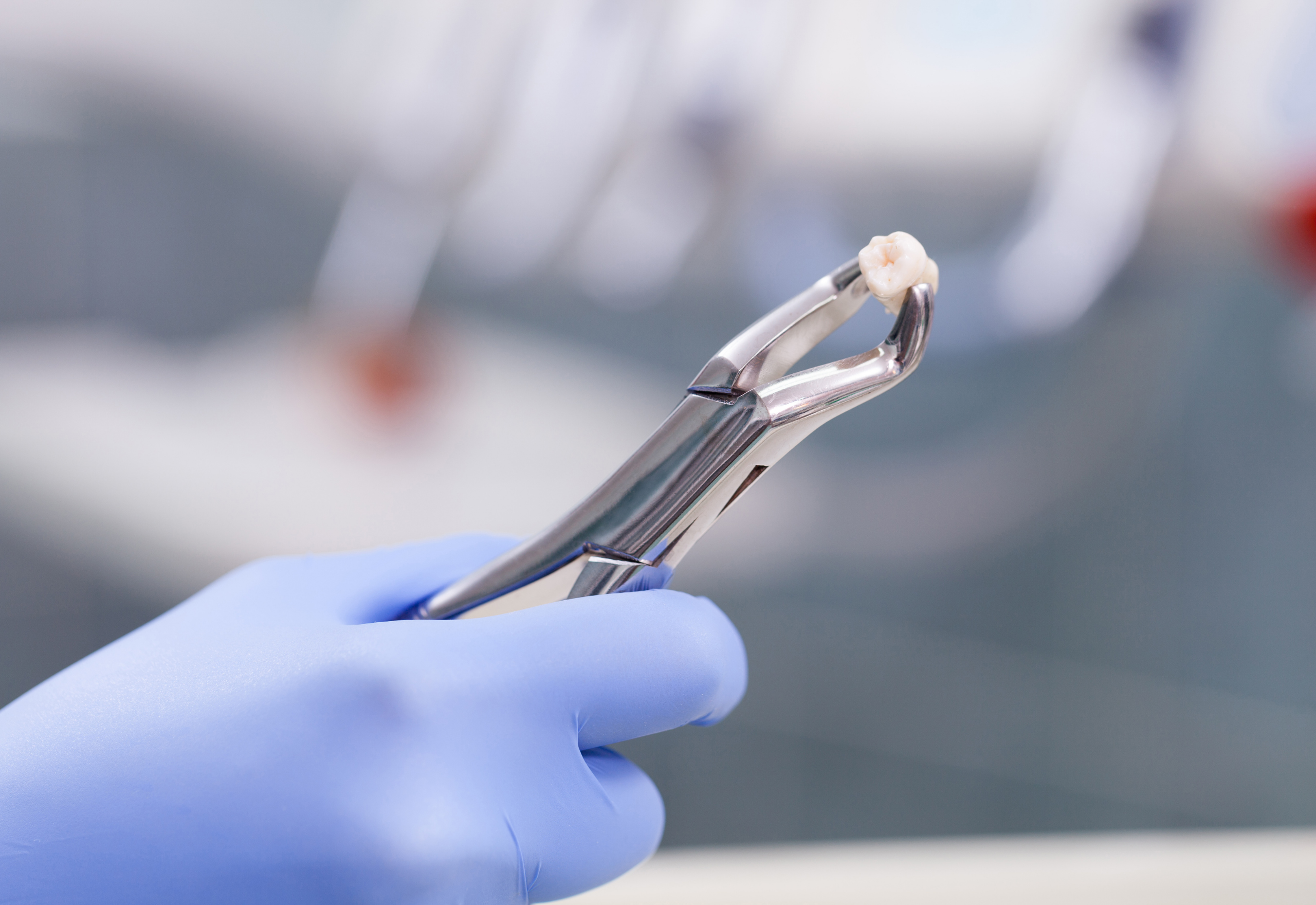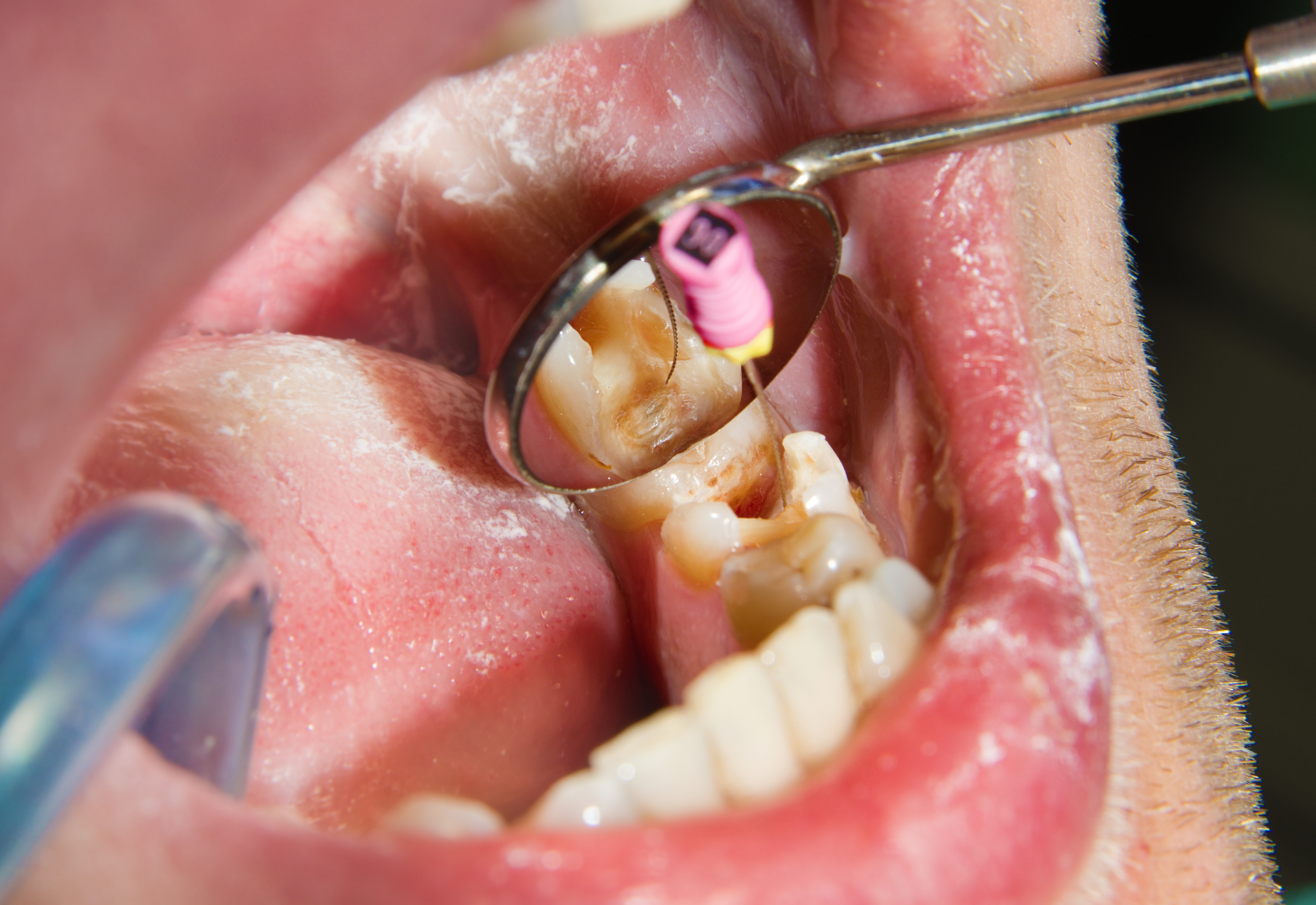General Dentistry
Comprehensive care for your everyday dental needs, including fillings, tooth extraction, custom-fitted mouth guards and preventive treatments for lasting oral health.

Extraction
When considering extraction, our dentist will need to assess the affected tooth to see if it can be saved through other procedures, such as root canal treatment or crowns.
If your teeth are affected by advanced gum disease, deep cracks, or are deeply decayed, it is likely that other treatments cannot preserve your teeth, and we may recommend having them extracted instead. Alternatively, if you are about to start on dental braces, we may also recommend tooth extraction to create space and allow for better alignment of your teeth.
Rest assured that any extraction process will begin with an expert diagnosis and treatment plan.
Fillings
Tooth decay can lead to cavities, compromising your oral health. Our dentists expertly repair damaged teeth with durable fillings, restoring their function and appearance.
We offer a variety of filling materials such as amalgam, composite resin, and glass ionomer cement, to suit your specific needs and preferences.


Scaling & Polishing
Plaque and tartar can form even if you brush and floss regularly. Built up plaque and tartar is best removed by a dentist with professional dental instruments.
Scaling is a routine procedure done to remove stubborn tartar and plaque build-up from below the gum line. After scaling, we will polish your teeth with a polishing paste and a rotating rubber cup (similar to an electric toothbrush), to improve the appearance of your teeth and remove bacteria.
Custom Mouthguards
Teeth grinding, or clenching, can wear down tooth enamel over time, and even lead to fractured teeth.
A customised mouthguard can help prevent further damage to your teeth. Designed for optimal protection without hindering speech or breathing.
Depending on grinding habits, we recommend that you wear it at night, or even during the day. They are also helpful during contact sports, by protecting your teeth from impact.

Receive guidance and advice by speaking to our dentists today.
FAQ
You should visit a dentist every 6 months for professional cleaning and examination. This is especially important for people who:
- are prone to plaque and tartar buildup
- are smokers as they are at increased risk for oral cancer, gum disease and oral infection
- have persistent bad breath
- have gum disease, to make sure the condition is treated
- have heart disease, as poor dental health may increase the risk of heart attack or stroke
You should also make an appointment with our dentist as soon as possible if you experience the following symptoms:
- toothaches that do not go away
- chronic jaw pain
- persistent bleeding gums
- mouth sores that do not heal
- loss of fillings, lose and broken braces or issues with other dental work
Patients holding CHAS Blue or Orange, Pioneer Generation or Merdeka Generation Cards will be entitled to the relevant subsidies.
Denticare is accredited by the Singapore Ministry of Health (MOH) as a day surgery facility. Patients who are Singaporeans or Permanent Residents of Singapore may be able to claim a portion of their surgical expenses from their Medisave Account. The exact amount would depend on the complexity of the procedure.
You may call our enquiries and appointment hotline at 6336 6222 or visit the Fees and Subsidies page on our website to find out more about fees and subsidies.
Filling
Our dentist may put some numbing agent on your gums before anesthesia, which makes getting a filling relatively painless. Some patients may experience mild discomfort or sensitivity after the procedure, but this usually subsides within a few days
The lifespan of a filling depends on the type of filling, the size of the cavity, and the patient’s oral hygiene habits.
Typically it can last 10-15 years or more.How can I take care of my tooth filling?
We would recommend practicing a simple dental routine such as brushing twice daily and flossing daily to remove plaque between teeth. We also highly recommend visiting your dentist regularly at least twice a year for general checkups and cleanings.
Extraction
All our extractions are performed under anaesthetic. As such, you should not experience significant discomfort, even after the procedure. We also provide painkillers where necessary.
You can expect the initial healing process to take at least 2 weeks, but most swelling and bleeding should stop within 1-2 days after the procedure. If the bleeding does not stop after this period of time, you can take some steps to address it on your own, such as biting firmly on gauze for 15 to 20 minutes. If this does not stop the bleeding, give us a call immediately, and we will arrange for a check-up.
You can also reduce swelling and pain, such as using ice packs, followed by a warm compress to prevent a sore and stiff jaw.
A blood clot usually forms at the site of the tooth extraction, serving as a protection over the underlying bone and nerve endings in the empty tooth socket. Avoid smoking, using a straw, and any vigorous activity for the first two weeks. These activities could disrupt the blood clot, which in turn can cause more bleeding or painful inflammation, overall disrupting the healing process.
Learn more about post-oral surgery here.
Yes, only patients holding CHAS, Pioneer Generation or Merdeka Generation Cards will be entitled to the relevant subsidies. Please visit our Fees page to find out what subsidies you are entitled to.
Scaling & Polishing
Yes, only patients holding CHAS, Pioneer Generation or Merdeka Generation Cards will be entitled to the relevant subsidies. Please visit our Fees page to find out what subsidies you are entitled to.
Book Your Appointment Today
Our simple to use, online appointment process makes it easy for you to book for any one of our services and doctors.

Please enter the information below to request an appointment with us.
The requested appointment slot is subject to availability and our staff will contact you within 5 working days.
To book an urgent/emergency appointment, please call us at 6336 6222. All fields marked with an ( * ) are mandatory.
